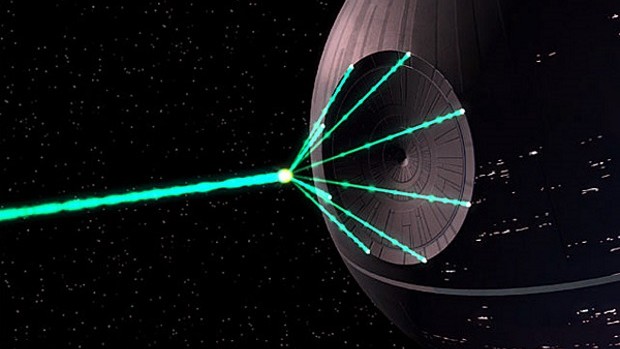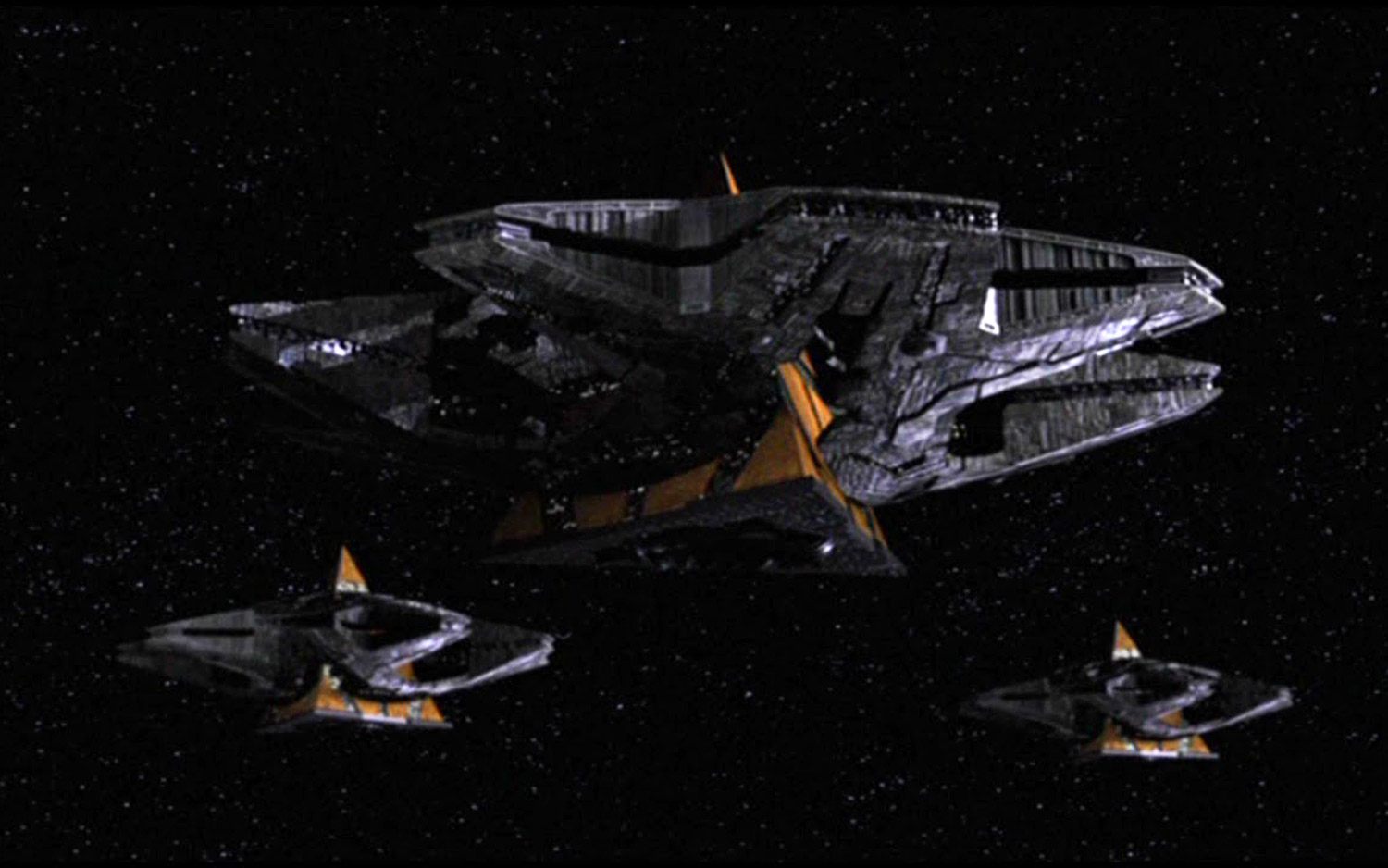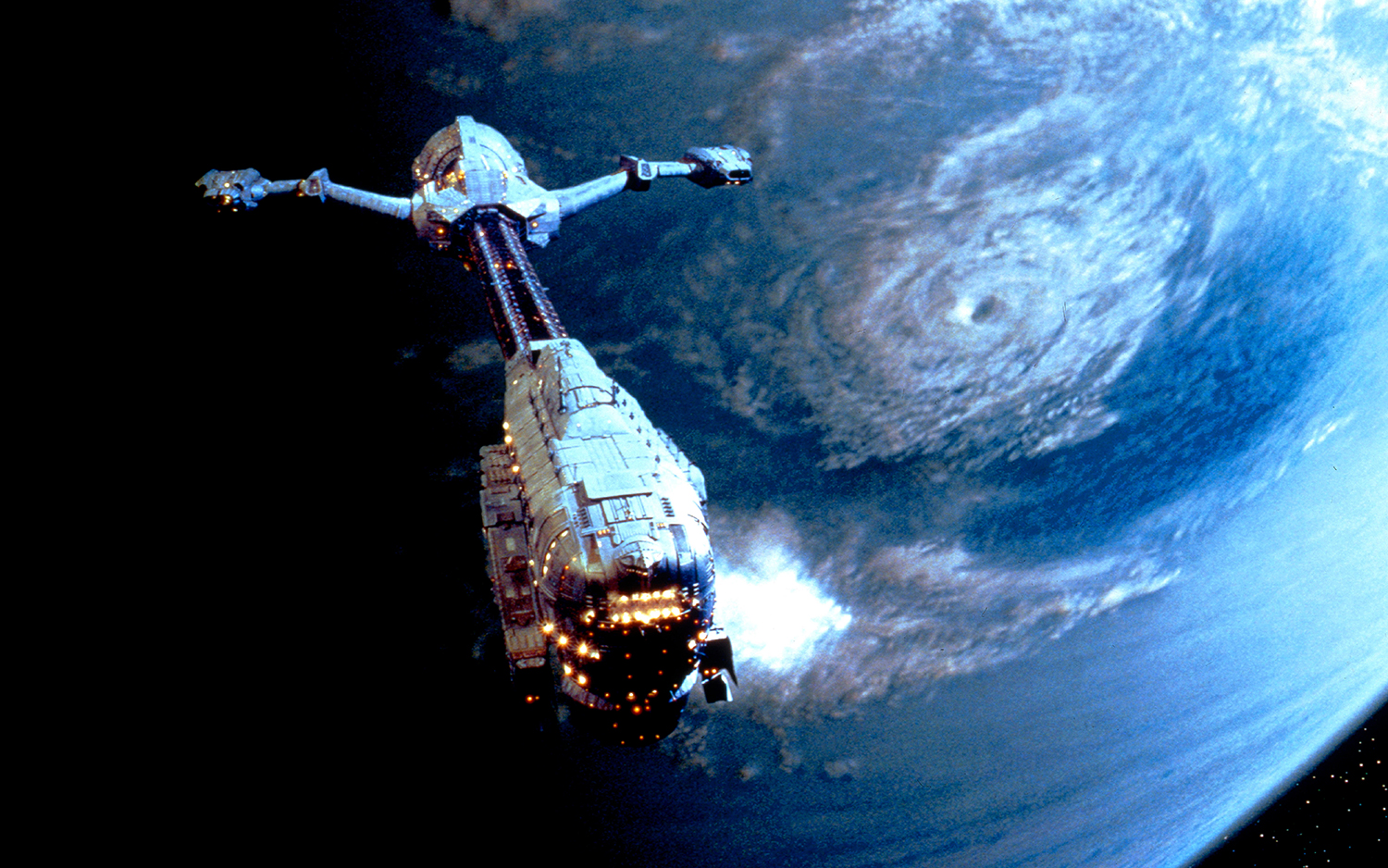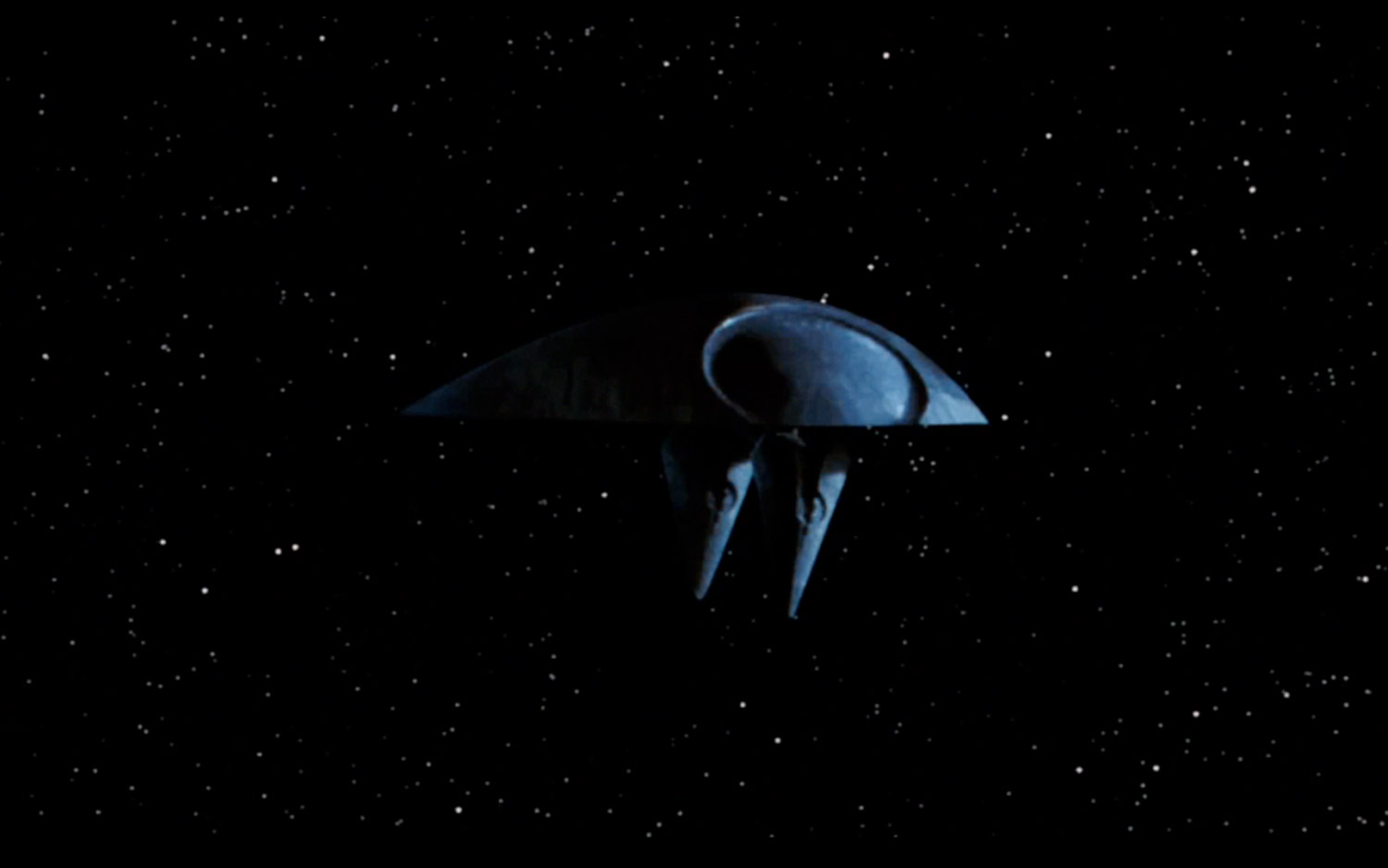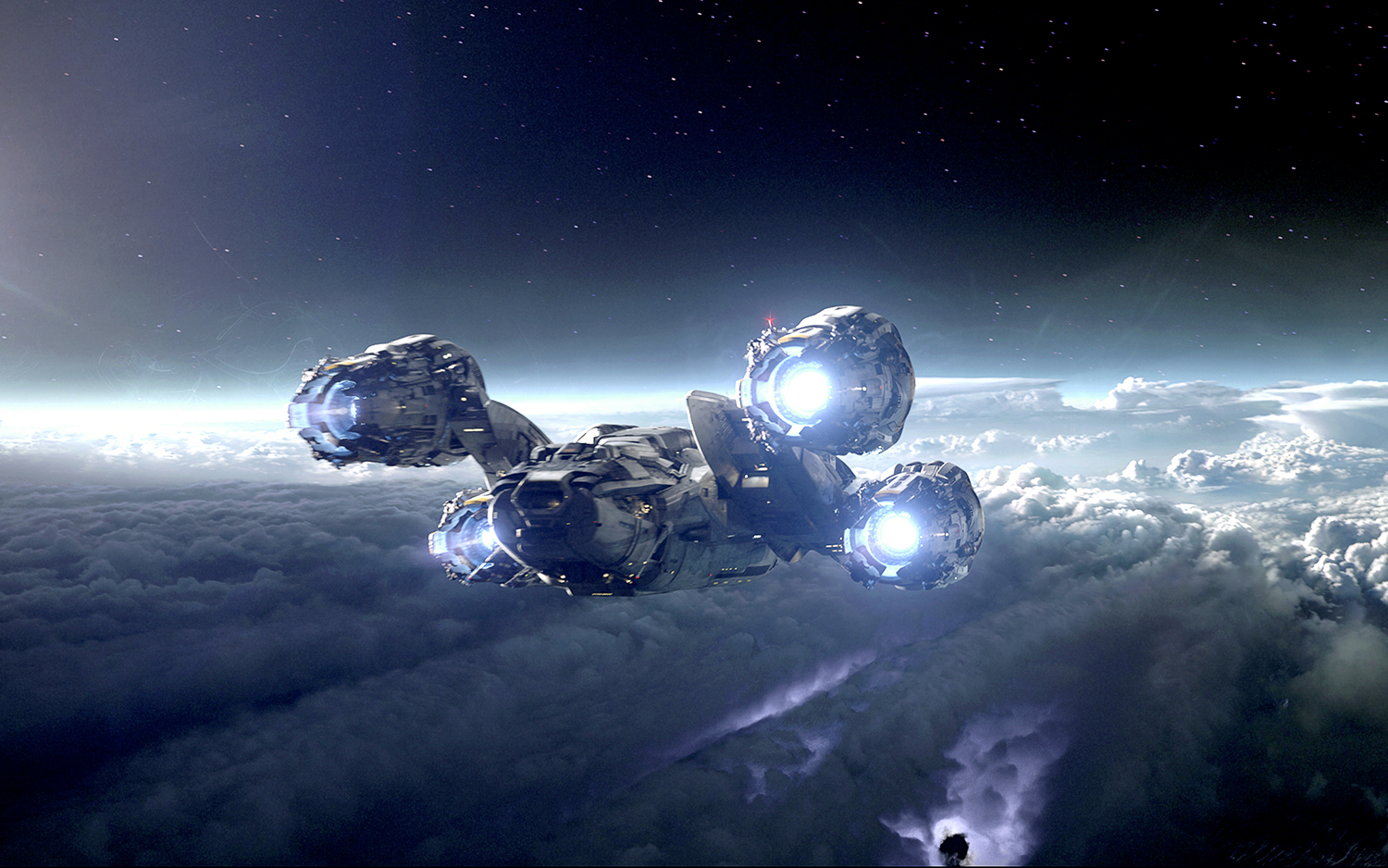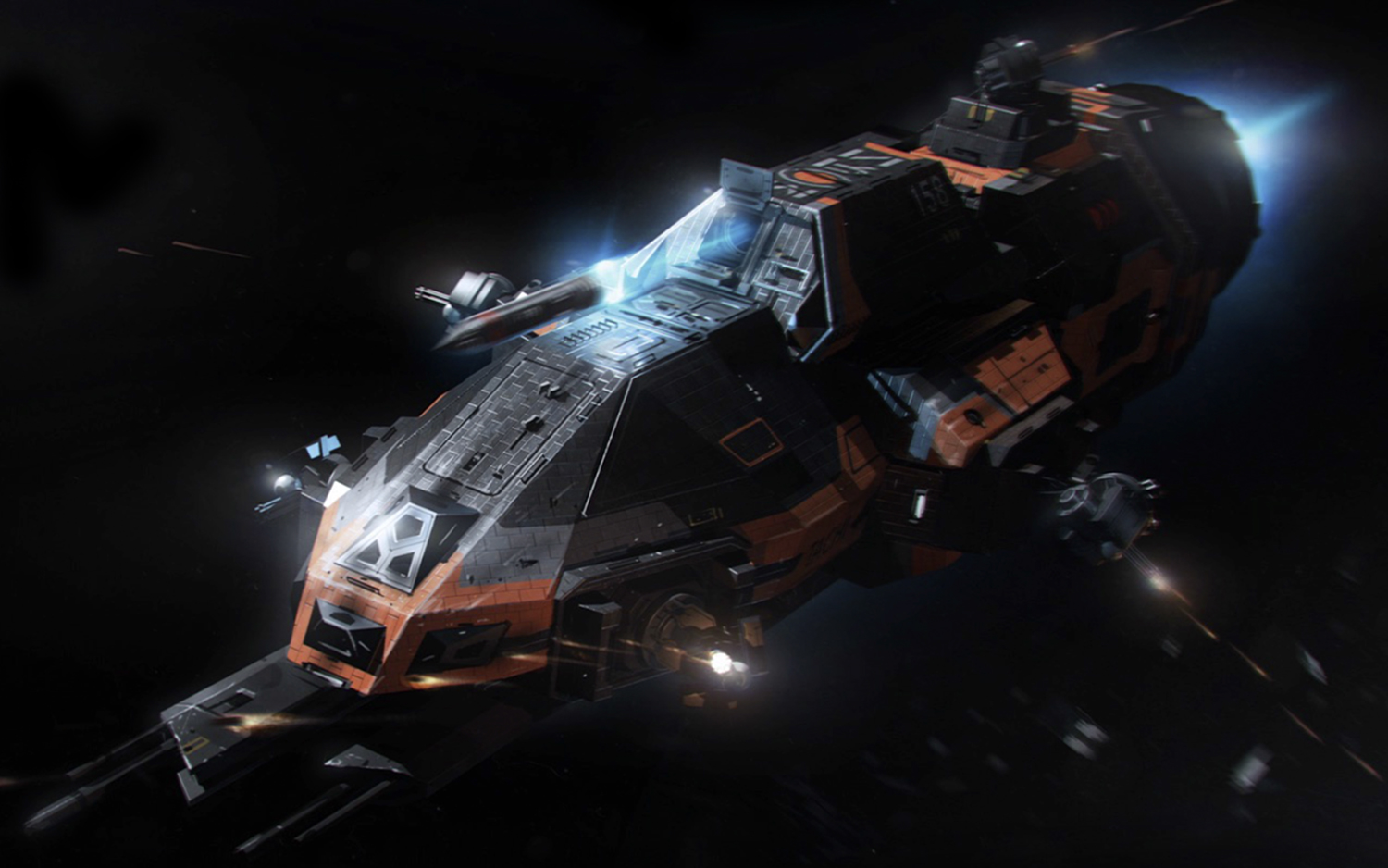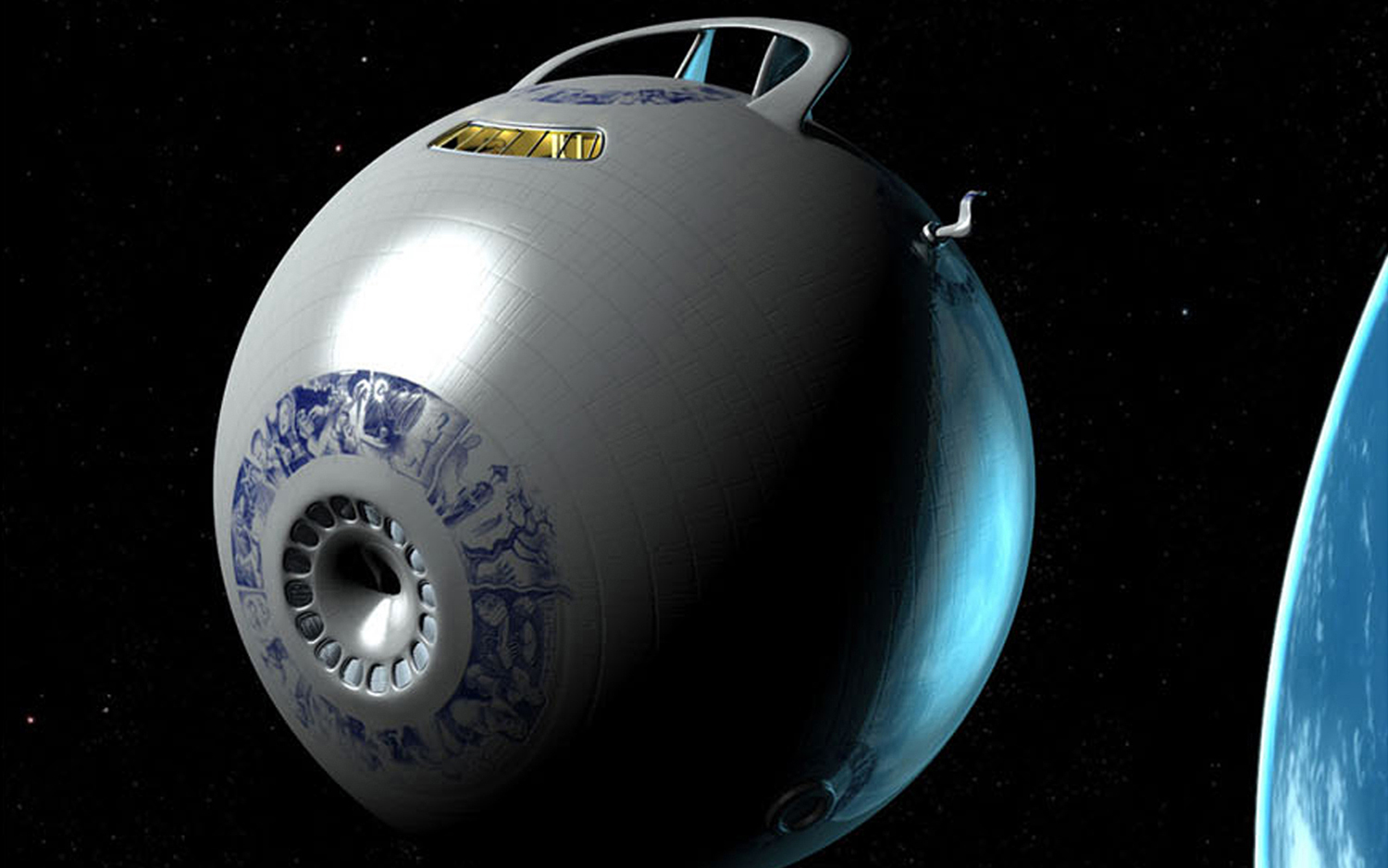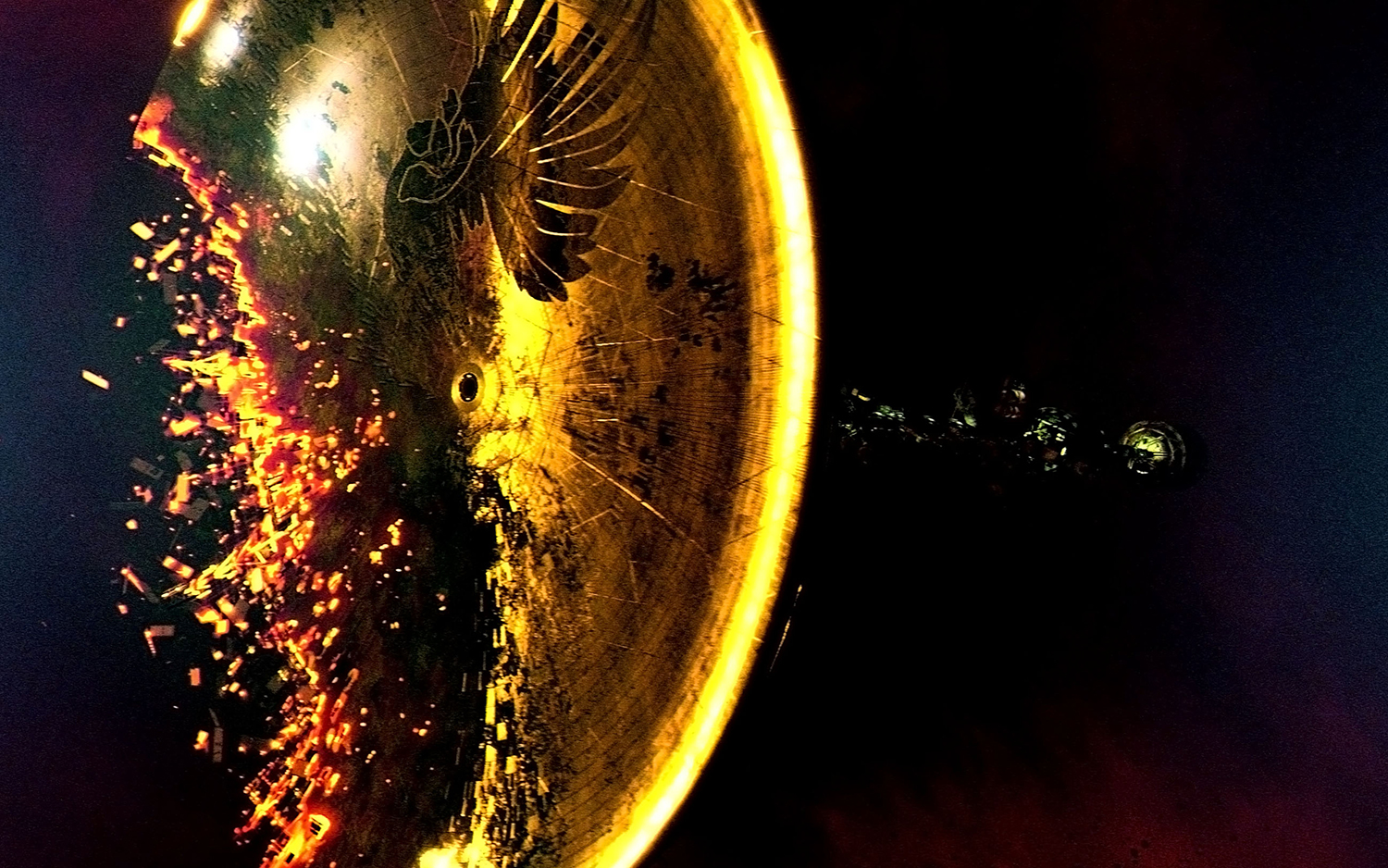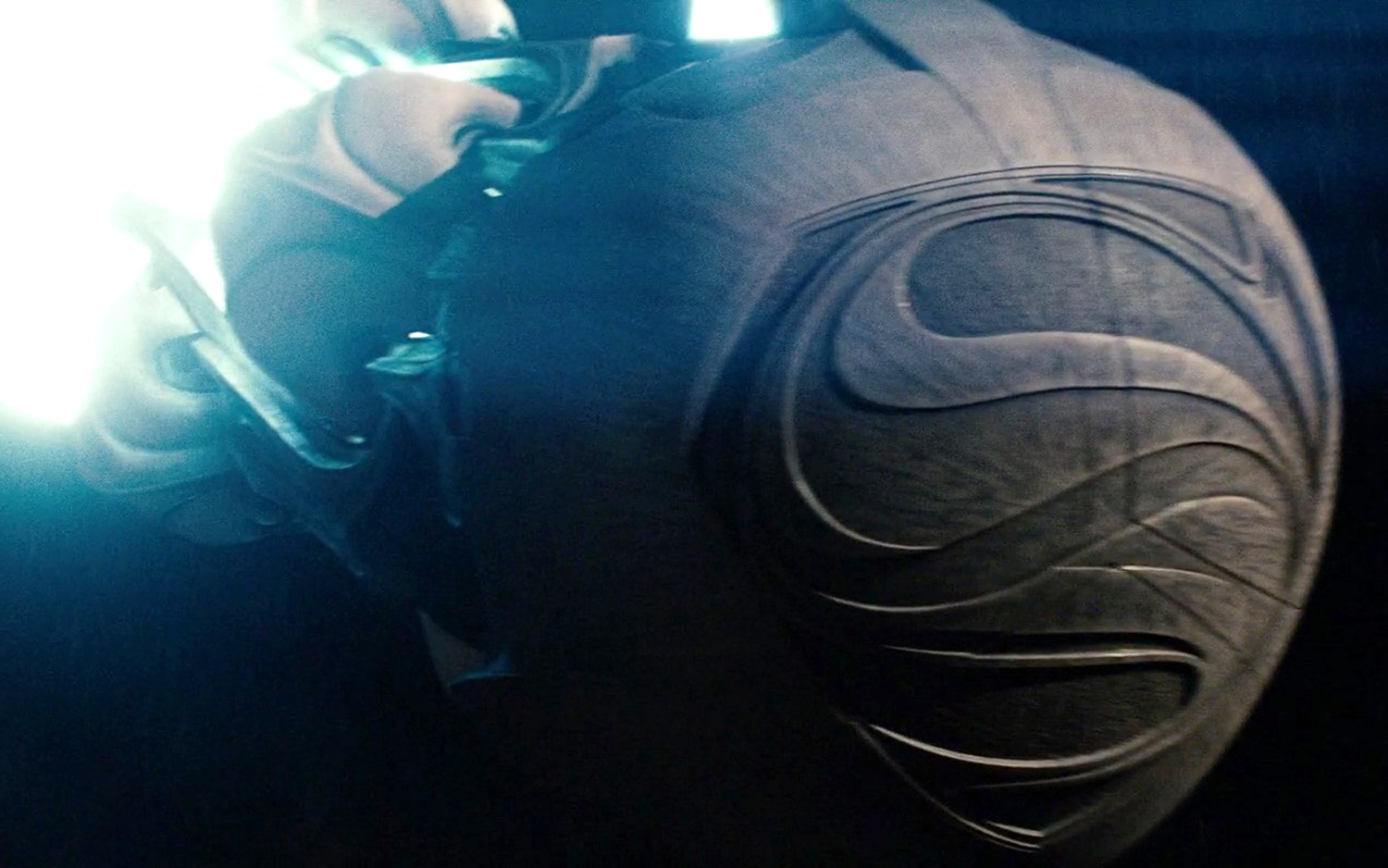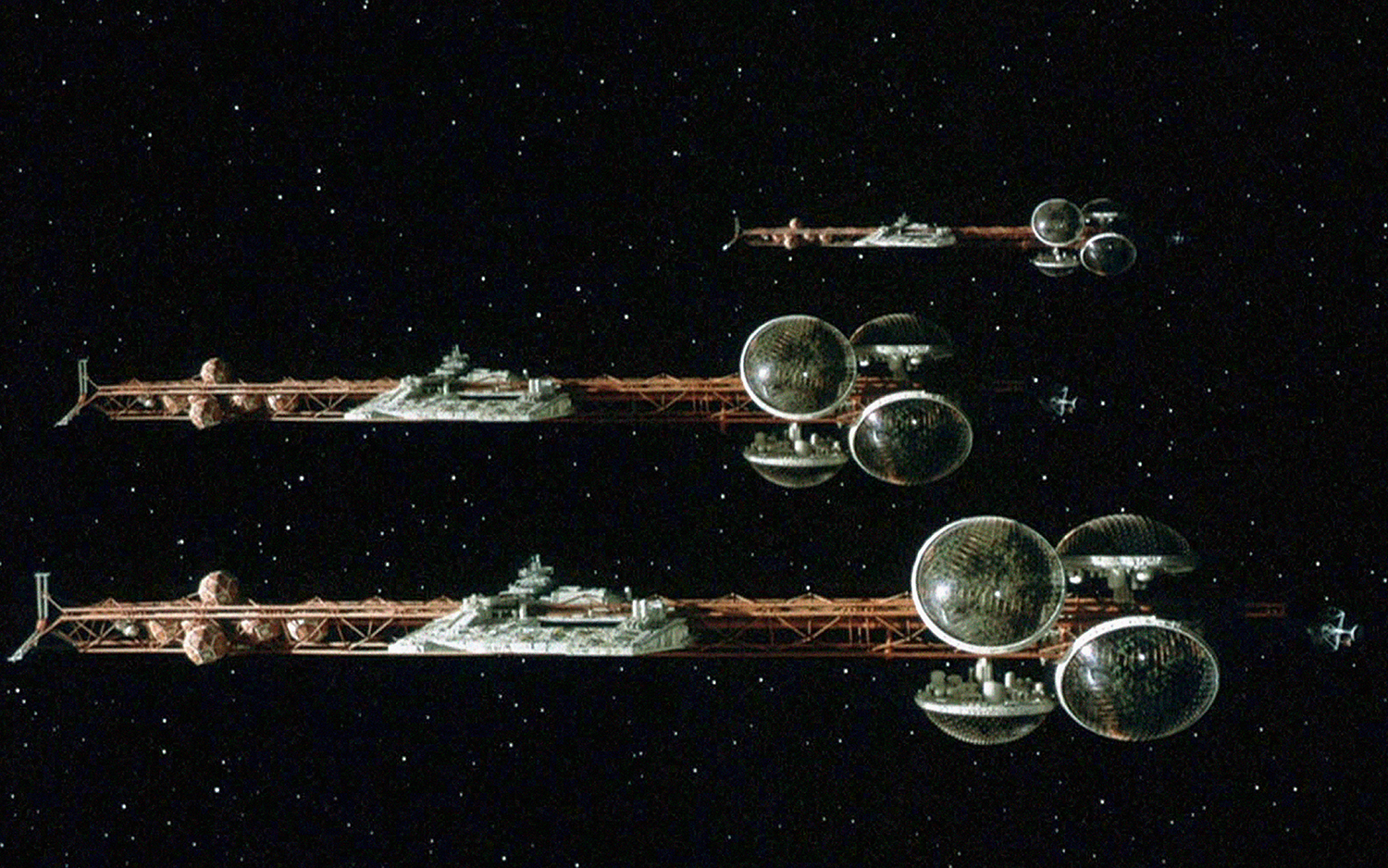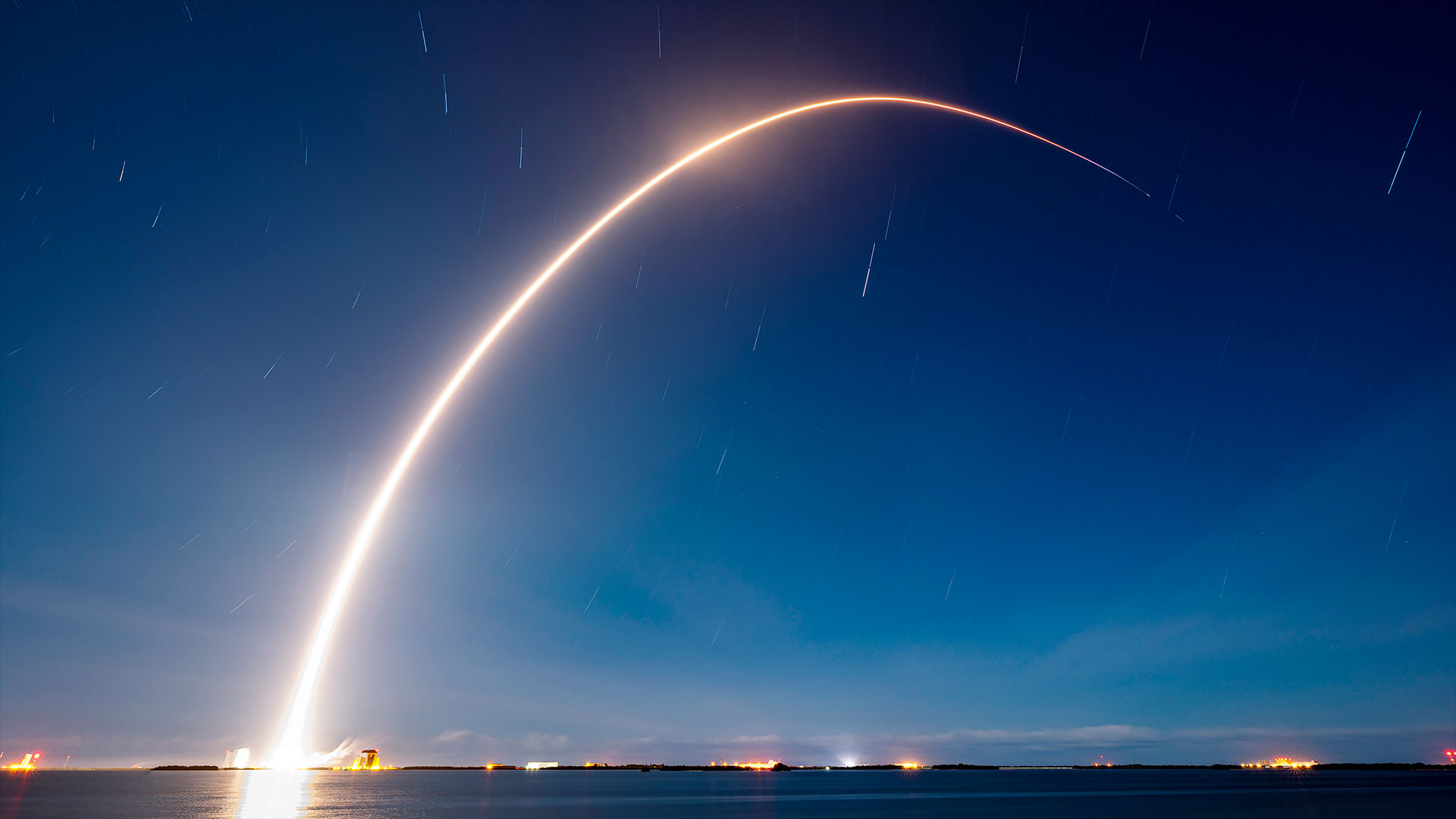The greatest spaceships of science fiction
Here’s our rundown of the greatest spaceships of science fiction.
- Death Star and its successor, Starkiller Base (Star Wars franchise)
- Ha'tak ('Stargate' franchise)
- Event Horizon ship (1997)
- 'Independence Day' mothership (1996)
- USCSS Prometheus ('Prometheus,' 2012)
- The Rocinante ('The Expanse' franchise)
- Heart of Gold ('Hitchhiker's Guide to the Galaxy' franchise)
- Icarus II ('Sunshine,' 2007)
- Superman/Kal-El spaceship ('Superman' franchise)
- The Valley Forge ('Silent Running,' 1972)
Death Star and its successor, Starkiller Base (Star Wars franchise)
The Death Star and successor Starkiller Base are pure cool, but they're a few ranks behind the Millennium Falcon because well, people keep finding ways to destroy them. But let's ignore that and focus on the positives. First of all is the pure power — the Death Star can easily kill a single planet, while the Starkiller Base can wipe out entire planetary systems. They also have a bit of a stealth aspect, despite being so big; one famous line compares the Death Star to a moon, at least because it's so huge and has a crater on it. And let's not forget that Starkiller Base somehow broke the laws of physics and got its power from "quintessence," a sort of dark energy that is everywhere in the universe.
NEXT: An ancient power
Ha'tak ('Stargate' franchise)
Ha'tak looks like a lumbering pyramid in space, but even a newbie to the Stargate universe can see it's a powerful force to be reckoned with. The Stargate fan wiki notes that Ha'taks use an advanced form of propulsion that allow the ship to get as fast as 5 percent of lightspeed. Its shields are so powerful that they can hold off the heat of the corona — the atmosphere — of a huge star for many hours. Some Ha'taks even include cloaking devices, although that's not standard issue in the fleet. It sure was enough of a threat to worry the humans in the Stargate program, however.
NEXT: A terrifying apparition
Event Horizon ship (1997)
Paul W S Anderson's 1997 film Event Horizon takes science fiction to horrifying new levels and is reknowned for being a truly scary space movie. In terms of pure terrifying innovation, it's hard to beat the after-effects of the Event Horizon. As recounted in the eponymous 1997 film, a crew of astronauts from the future set out on a rescue mission. They're after the Event Horizon, which had suddenly appeared in orbit around Neptune. The crew boards the ship in search of any of their missing crewmates.
Unfortunately, they find out that Event Horizon's experimental engine caused a few problems — namely, it ripped a hole in space-time and a nasty homicidal alien was on board the ship. The ship gains points for some of it's basis in scientific reality and also the subtext this provides, according to The Cosmic Chemist. While we (unfortunately) don't get to see the ship at full health during this terrifying movie, we do learn it's capable of generating black holes. Talk about power.
NEXT: An enormous structure
'Independence Day' mothership (1996)
The highest grossing movie of 1996, according to Variety, one of the most famous Science fiction shots is the vast spacecraft hovering ominously over the White House in the original 'Independence Day,' this ship is huge — some 600 kilometers (roughly 370 miles) long. As viewers saw in the film, there are a bunch of tunnels that lead to the inside of the ship; two brave crew members from Earth managed to make their way into the control center, where they saw an eerie blue mist surrounding the zone. The Independence Day wiki also mentions a "beehive-like structure" that serves as the ship's transportation center. Little is known about this ship's capabilities, but it's downright scary. When the films villanous aliens returned in the 2016 sequel, Independence Day: Resurgence, of course their vast ship made a reappearence too.
Breaking space news, the latest updates on rocket launches, skywatching events and more!
NEXT: A streamlined beauty
USCSS Prometheus ('Prometheus,' 2012)
The Alien franchise has it's fair share of exciting spaceships and some fans might chastise us for not including the Nostromo from the original 1979 'Alien'. However, the Prometheus is a beautiful vessel and the most advanced and expensive faster-than-light ship ever made, according to the "Alien vs. Predator" wiki. Whereas the Nostromo is a cargo ship, the Prometheus has got all the comforts you'd expect for a spaceship going long distances — a hypersleep chamber, a series of on-board ATVs for planetary exploration, escape modules and even intergalactic communications antennas. It even — improbably, for its size — can do vertical takeoffs and landings, which makes it ideal for landing on a planet. Well, that's if the planet doesn't have homicidal aliens living there already.
NEXT: A comfortable steed
The Rocinante ('The Expanse' franchise)
The Rocinante is a comfortable, yet fast warship — the designers even took into account the preference for humans to have g-forces similar to normal gravity (at least, while the ship is under thrust). It's a pretty awesome workhorse ship, in that it can fire torpedoes or help with boarding parties. Besides which, it goes fast through space. Perfect for dodging any incoming missiles.
NEXT: A highly improbable ship
Heart of Gold ('Hitchhiker's Guide to the Galaxy' franchise)
Related stories:
– Marvel movies you probably haven't seen
– Upcoming sci-fi movies for 2022
– Best asteroid movies, ranked
Douglas Adams franchise is renowned for its quirky sense of humour, so it makes sense that the main craft of it's protagonists would be equally eccentric. This is a fun, zippy ship, thanks to its unique use of the Infinite Improbability Drive — an engine that provides for near-instantaneous travel with "tedious mucking about in hyperspace," according to the Hitchhiker's fan wiki. The designers gave a lot of attention to creature comforts, even including doors who say (in the books) how glad they are to help you. While the shape of the ship varies between the book, movie and TV series, a common theme in all three media is how white and clean the ship looks.
NEXT: A cry of desparation
Icarus II ('Sunshine,' 2007)
Danny Boyle's 2007 Sci-fi film Sunshine is a pretty grim affair and we love this spaceship because it shows just what humans can do if they are desperate enough. Basically, Earth is in crisis because the sun's power is fading a lot earlier than expected (in the year 2057, to be precise.) The point of Icarus II is to carry a huge nuclear bomb towards the sun. The crew faces many problems and saboteurs along the way, but somehow this ship just keeps on running — mostly as it's supposed to. That makes it worthy of a mention.
NEXT: A compact marvel
Superman/Kal-El spaceship ('Superman' franchise)
We're more intrigued by Superman's spaceship than able to say much about it. The craft is not featured heavily in the 1979 Christopher Reeves film meaning that spaceship afficiandos have some cool unanswered questions to consider when thinking about how Superman was shipped to Earth. Kal-El, as the infant was called, somehow stayed in a small space and was kept fed, cleaned, warm and entertained on his trip to Earth. That's some mean sort of automation. Also, the ship was relatively small — where did all of these systems fit? Goes to show you that planet Krypton residents were really smart - or the filmmakers weren't.
NEXT: A vibrant forest
The Valley Forge ('Silent Running,' 1972)
The early 1970's was full of thoughtful science fiction and 1972's Silent Running is no different, having a strong enviromentalist message. We applaud the constructors of the Valley Forge for somehow figuring out how to build a closed ecosystem. Inside of this (somewhat large) spaceship is a forest filled with animal and plant life, tenderly cared for because Earth's planet life has somehow gone extinct; this ecosystem should give our planet a kick-start, once the time is right. There's a flaw with this forest, though, in that it needs a source of light to survive. This ends up being crucial to the plot. Alas, (spoiler alert) the forest is shown drifting into deep space at the end of the film, so it's not clear how the lights will be generated once the ship's power source runs out.
NEXT: A malicious marvel

Elizabeth Howell (she/her), Ph.D., was a staff writer in the spaceflight channel between 2022 and 2024 specializing in Canadian space news. She was contributing writer for Space.com for 10 years from 2012 to 2024. Elizabeth's reporting includes multiple exclusives with the White House, leading world coverage about a lost-and-found space tomato on the International Space Station, witnessing five human spaceflight launches on two continents, flying parabolic, working inside a spacesuit, and participating in a simulated Mars mission. Her latest book, "Why Am I Taller?" (ECW Press, 2022) is co-written with astronaut Dave Williams.
